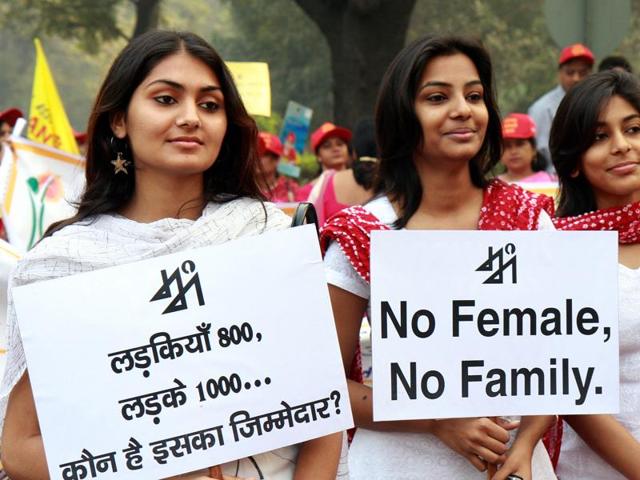Ahmedabad criminal network reveals dimensions of female foeticide in India
Despite legislation, abortion based on sex determination remains common. Dr Carvalho to AsiaNews: “It transcends caste; prevalent even among the wealthy and educated”. Former nurse arrested in Bavla: carried out illegal abortions in a guesthouse. Authorities report links with hospitals and ultrasound centres.
Delhi (AsiaNews) – Despite legislative efforts, female foeticide remains tragically widespread in India. This was highlighted by a recent operation conducted by the Special Operations Group (SOG) of the rural police in Ahmedabad, which uncovered a criminal network performing illegal abortions at a guesthouse in Bavla, in Ahmedabad district. Acting on specific intelligence, law enforcement officers, accompanied by local health department officials, raided the premises and arrested 40-year-old Hemlata Darji, a former nurse accused of running the illicit operation. Police stated that Darji, who had worked for over a decade in private hospitals in Bavla and Dholka, lacked valid medical qualifications. She was reportedly performing abortions using her prior professional experience.
According to police sources, Darji and an assistant were caught red-handed during the raid. She was preparing to carry out an abortion on a woman who had arrived at the guesthouse for the procedure. The man accompanying the “client” was also taken into custody. Investigators recovered substantial evidence indicating that Darji maintained connections with hospitals and local ultrasound centres to obtain information about the sex of unborn children. Preliminary findings suggest the operation specialised in terminating female pregnancies – in effect, carrying out targeted abortions.
“The woman had identified the guesthouse as a suitable location for such operations, believing she could get away with it,” said an officer involved in the investigation. Further enquiries revealed that Darji kept a detailed record of people seeking to abort female foetuses. Reportedly, she charged clients between 10,000 and 50,000 rupees (£95–£475), depending on their financial means. Patients would stay at the guesthouse for one or two days, with procedures involving the administration of oral or injectable medication.
An official investigation has now been launched under the Bharatiya Nyaya Sanhita (India’s new penal code in effect from 2024) and the Medical Termination of Pregnancy Act. Authorities have begun a thorough inquiry to determine the scale of Darji’s network, examine her financial records, and identify ultrasound centres involved in illegal sex determination. Bavla police also stated that efforts are under way to track down others connected to the operation and establish whether abortions were carried out beyond the legally permitted gestational limit. The arrest of the former nurse Darji is being described as part of a district-level crackdown on illegal medical practices and crimes against female children.
Dr Pascoal Carvalho, a physician and former member of the Pontifical Academy for Life, told AsiaNews: “Sex-selective abortion is a grave social and moral evil. It transcends all castes, classes, and communities, and is not uncommon even among the wealthy and educated in India.” In a bid to combat this crime, the Indian government enacted the Pre-Conception and Pre-Natal Diagnostic Techniques (PCPNDT) Act in 1994, which bans sex selection and regulates diagnostic techniques to prevent their misuse. Nonetheless, organised criminal networks continue to engage in the practice, as recent investigations demonstrate.
The latest advances in medical science, originally designed to detect foetal abnormalities, are being misused to determine the sex of the unborn child with the intention of aborting it. Dr Carvalho added: “The Catholic Church strongly condemns the growing threat of female foeticide in Indian society.” He described it as a form of structural violence against women, driven by rampant patriarchy: deeply ingrained gender bias lies at the heart of the abortion of female children.
India, now experiencing rapid economic growth and expected to become the world’s third-largest economy by 2028, must evaluate its true progress by how it treats its most vulnerable citizens. “A baby girl’s life is cut short before her first cry. Her voice is silenced in the womb,” Dr Carvalho concluded.
12/02/2016 15:14







.png)










